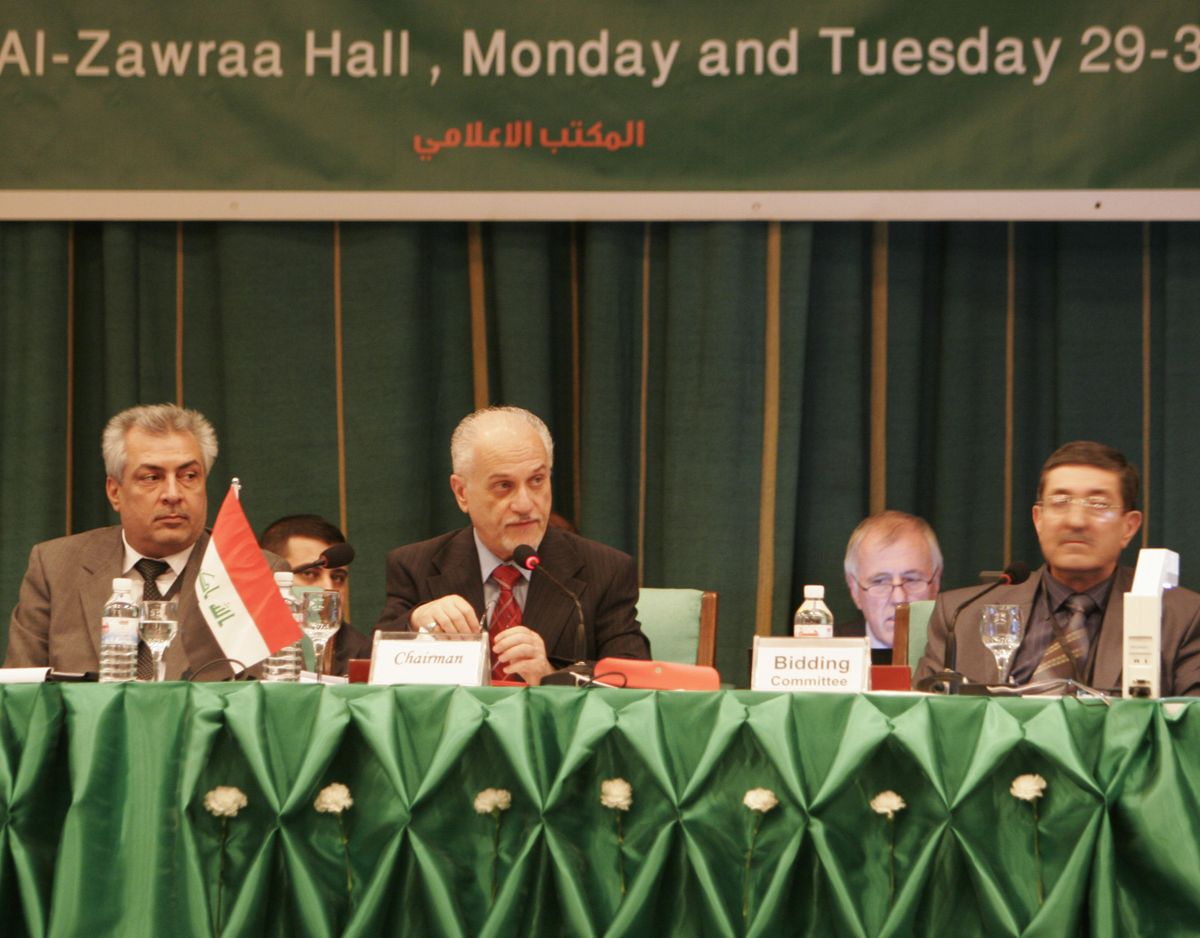Iraq oil auction falls flat
Foreign licensing seen as crucial to raising cash for nation’s recovery

BAGHDAD – Iraq’s hopes for an oil-revenue-fueled postwar recovery suffered a sharp blow Tuesday as the foreign oil companies it counted on to help develop its vast reserves greeted the country’s first oil auction in more than 30 years with grumbles and just one deal.
Roughly a year in the making, the foreign licensing round was touted by Oil Minister Hussain al-Shahristani as a key step to boosting Iraq’s oil output to 4 million barrels a day and raking in cash the government desperately needs after years of sanctions and the U.S.-led invasion in 2003 left its economy in shambles.
But the process has been criticized inside the country from the start, and the poor showing at the televised event could offer opponents of the embattled al-Shahristani even more ammunition. It’s the kind of political unrest that helped keep the companies at arm’s length, despite a shot at 43 billion of the country’s 115 billion barrels of crude reserves.
“With this outcome, the Iraqi government becomes the desperate one,” said Samuel Ciszuk, Mideast energy analyst for London-based IHS Global Insight. “Al-Shahristani has been very focused on this round and criticized for ignoring everything else, including the easy repairs that could have been done over the past couple of years.”
From the first field offered, disputes over how much the companies would get for producing over a minimum output target cast a pall on the process.
Under the 20-year service contracts on offer, the companies would be paid a per-barrel fee for any crude they produce in excess of a minimum production target. But the price requested by all the companies was at least twice as high – and in a couple of cases almost 10 times higher – than what the oil ministry was willing to pay.
Two oil executives from different companies at the auction complained that Iraq was offering too little money given the prevailing security risks and political uncertainty.